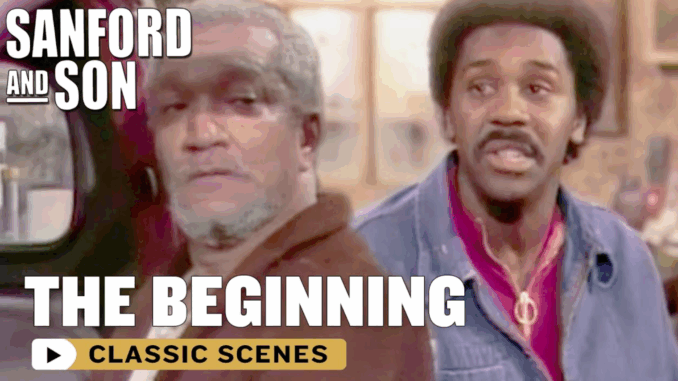
The comedy of clutter — and clarity
On the surface, Sanford and Son was a sitcom about a cantankerous junk dealer and his frustrated son. But for those paying closer attention, it was more than a barrage of insults and pratfalls. Fred Sanford’s world — dusty, cluttered, chaotic — was a reflection of a country navigating the junk heap of its past.
A wise fool in Watts
Fred G. Sanford (the “G” stood for whatever punchline was needed) wasn’t just a sharp-tongued senior with a heart condition that only flared up when the rent was due. He was a philosopher of the forgotten. In his beat-up armchair, surrounded by other people’s throwaways, Fred crafted his own sense of power — not through wealth, but through wit.
Set in the heart of Watts, Los Angeles — a neighborhood still healing from the 1965 riots — Sanford and Son never directly addressed race relations. It didn’t have to. Fred was the commentary. His sarcasm, suspicion of “the man,” and constant hustle were a survival strategy. Beneath every one-liner was a deep knowledge of how the world saw him — and how he would never let that define him.

Trash talk as survival
When Fred insulted his son Lamont, it was often brutal — but it was also a form of intimacy. Their bickering became a code: a way to show love without vulnerability. Fred couldn’t say “I’m proud of you,” so he said, “You big dummy.”
What made this dynamic brilliant was that it never needed explaining. Black families, working-class households, and anyone familiar with tough love recognized the truth instantly.
The legacy in the landfill
Fifty years later, Sanford and Son still stands as a landmark for portraying Black life on TV without turning its characters into either victims or saints. Fred wasn’t respectable — he was real. And in a world obsessed with reinvention, his junkyard was a reminder that what’s old, discarded, and dented might still have the most value.